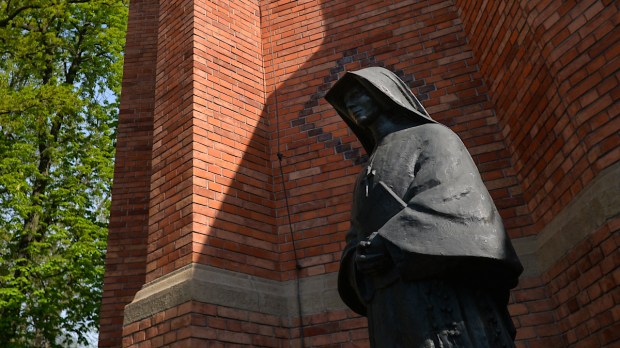While the Catholic Church currently endorses the Divine Mercy devotion revealed to St. Faustina Kowalska, initially this was not the case.
In fact, the Vatican even banned the Divine Mercy devotion for 20 years, forbidding anyone to spread or promote it.
The Marian Fathers explain what happened on their Divine Mercy website.
Fr. Sopocko was busy himself spreading the devotion, and in the process suffering much ridicule and loss of reputation. The hardest blow, however, came in 1959, when the Vatican, having received erroneous and confusing translations of the Diary, forbade the spreading of the Mercy devotion in the forms proposed by Sr. Faustina.
Here is a translation of the official decree made by the Vatican first given on November 19, 1958, and reaffirmed in 1959.
The supernatural nature of the revelations made to Sister Faustina is not evident.
No feast of Divine Mercy is to be instituted.
It is forbidden to divulge images and writings that propagate this devotion under the form received by Sister Faustina.
It is not clear what exactly the Vatican saw amiss in the translation they saw regarding the Divine Mercy devotion, but eventually this ban was put into question by Archbishop Karol Wojtyła.
Wojtyła began the process of canonization of Sr. Faustina in 1965 and gave the texts of her Diary to another Polish theologian, Prof. Ignacy Różycki. Her Diary was reexamined and Wojtyła submitted it again to the Vatican for review in 1977.
Wojtyła was certain that there was nothing in the Divine Mercy devotion that was contrary to the Catholic faith and made it his mission to prove his point.
Then in 1978 Wojtyła was elected pope and became John Paul II.
The Congregation for the Doctrine of the Faith was able to review the Divine Mercy devotion with a more accurate translation and no longer found anything that would prevent its spread.
St. John Paul II eventually declared the Second Sunday of Easter as Divine Mercy Sunday and the devotion became more widely known around the world.



